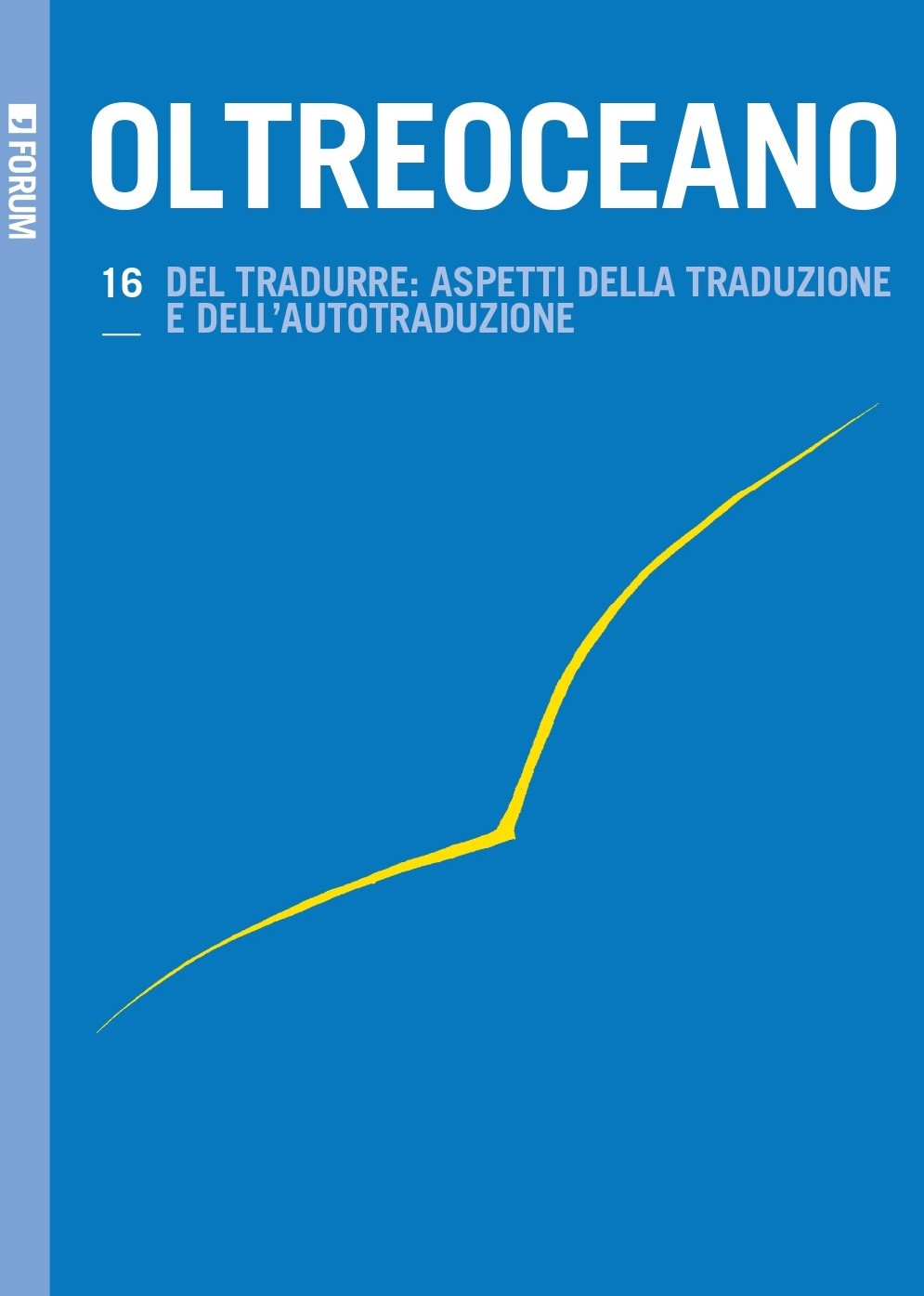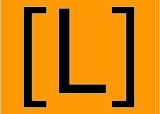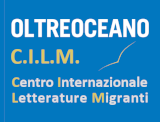Self-Translation in Nabokov’s Fiction: Three Paradigmatic Cases
Parole chiave:
self-translation, Nabokov, novel, short story autobiography, autobiographyAbstract
The article examines Nabokov’s theory and practice of self-translation in three paradigmatic cases: the novel Laughter in the Dark, the short story “Vozvraschenie Chorba”, and the autobiography Speak, Memory, self-translated into Russian as Drugie berega (1954), re-written in English in a revised and extended edition in 1966, and somehow completed in a fictional text titled Look at the Harlequins! (1974).
L’auto-traduzione nella narrativa di Nabokov: tre casi esemplari
L’articolo esamina la teoria e la pratica dell’autotraduzione di Nabokov in tre casi esemplari: il romanzo Laughter in the Dark, il racconto “Vozvraschenie Chorba” e l’autobiografia Speak, Memory, autotradotta in russo come Drugie berega, riscritta in inglese in una versione
rivista e ampliata nel 1966, in modo romanzato nel testo Look at the Harlequins! (1974).
Downloads
Riferimenti bibliografici
Babaian, C. (2018): Time Travel and the Naturalist’s Notebook: Vladimir Nabokov Meets the TimeTree of Life. The American Biology Teacher, 80 (9), pp. 650-658.
Boyd, B. (1990): Vladimir Nabokov. The Russian Years. Princeton: Princeton University Press.
Boyd, B. (1991): Vladimir Nabokov. The American Years. Princeton: Princeton University Press.
Boyd, B. (2011): Stalking Nabokov. Selected Essays. New York: Columbia University Press.
Chomsky, N. (2017): Tre lezioni sull’uomo. Linguaggio, conoscenza, bene comune. Transl. by M. Manganelli. Milano: Adriano Salani.
Cooper, S. (2018): Translating Timelessness: The Relationship between Vladimir Nabokov’s Conclusive Evidence, Drugie berega, and Speak, Memory: An Autobiography Revisited. The Modern Language Review, 113, 1, pp. 39-56.
Dobbin, B. (2011): The Queer Part Doors Play’ in Nabokov’s Laughter in the Dark. In S. Mukherji (Ed.), Thinking on Thresholds. The Poetics of Transitive Spaces (pp. 29-42). London, New York, Melbourne, Delhi: Anthem Press.
García de la Puente, I. (2015): Bilingual Nabokov: Memories and Memoirs in Self-Translation. Slavic and East European Journal, 59, 4, pp. 585-608.
Hetényi, Z. (2018): Translating Self-Translation and the Units of the Translation: the Case of Nabokov. Studia Slavica Academiae Scientiarum Hungaricae, 63, 1, pp. 49-55.
Jakobson, R. (1959): On Linguistic Aspects of Translation. In R. A. Brower (Ed.), On Translation (pp. 232-239). Cambridge: Harvard University Press.
Marrone, G. (2018): Prima lezione di semiotica. Bari-Roma: Laterza.
Mayer, R. (2002): Nabokov: a Case Study in the Art of Translation. Fathom. The Source for Online
Learning. Retrieved from file:///C:/Users/42lui/Downloads/Nabokov_A_Case_Study_in_the_Art-of_Trans.pdf
Nabokov, V. V. (1951): Conclusive Evidence. A Memoir. New York: Harper & Brothers.
Nabokov, V. V. (1966): Speak, Memory. An Autobiography Revisited. New York: Capricorn Books.
Nabokov, V. V. (1990): Eugene Onegin. A Novel in Verse by Aleksandr Pushkin I. Princeton: Princeton University Press.
Nabokov, V. V. (2001): Laughter in the Dark. London: Penguin Books.
Nabokov, V. V. & Wilson, E. (2001): The Nabokov-Wilson Letters, 1940-1971. S. Karlinsky (Ed.). Berkeley and Los Angeles: University of California Press.
Nabokov, V. V. (2002): The Stories of Vladimir Nabokov. D. Nabokov (Ed.). New York: Vintage International.
Nabokov, V. V. (2011): Drugie berega G. Barabtarlo & V. Pazhidaev (Eds.). Sankt-Peterburg: Azbuka.
Nabokov, V. V. (2014): Kamera obskura. V. Pazhidaev & V. Gorelikov (Eds.). Sankt-Peterburg: Azbuka.
Nabokov, V. V. (2016): Letters to Vera. O. Voronina & B. Boyd (Eds.). London: Penguin Classics.
Nabokov, V. Vozvraschenie Chorba (1930, sbornik rasskazov). Retrieved from http://flibusta.site/b/158137/read
Naiman, E. (2014): When Nabokov Writes Badly: Aesthetics and Morality in Laughter in the Dark. The Russian Review, 73, pp. 550-570.
Newmark, P. (1981): Approaches to Translation. Oxford: Pergamon Press.
Ponomareff, C.V. (2013): The Metaphor of Loss in Vladimir Nabokov’s Speak, Memory. Queen’s Quarterly, 102, pp. 402-413.
Rampton, D. (2016): The Aesthetics of Moral Contradiction in Some Early Nabokov Novels. In M. Rodgers & S. E. Sweeney (Eds.), Nabokov and the Question of Morality. Aesthetics, Metaphysics, and the Ethics of Fiction (pp. 109-125). London: Palgrave Macmillan.
Roper, R. (2015): Nabokov in America. On the Road to Lolita. New York and London: Bloomsbury.
Russo, M. (2015): Hypotranslating and Hypertranslating Theories in Nabokov’s Anja v strane chudes (1923) and Eugene Onegin (1975). Cosmo, 7, pp. 91-102.
Steiner, G. (2004): Dopo Babele: aspetti del linguaggio e della traduzione. Transl. by R. Bianchi & C. Béguin. Milano: Garzanti.
Struve, G. (1932): Vladimir Sirin. The Return of Tchorb. This Quarter, 4, 4, pp. 592-602.
Trousdale, R. (2011): Nabokov and the Transnational Canon. The Nabokovian, 66, pp. 7-14.
Downloads
Pubblicato
Come citare
Fascicolo
Sezione
Licenza
Copyright (c) 2020 Oltreoceano - Rivista sulle migrazioni

Questo lavoro è fornito con la licenza Creative Commons Attribuzione - Non commerciale - Condividi allo stesso modo 4.0 Internazionale.
Gli autori si impegnano a rispettare le seguenti condizioni, che s’intendono accettate al momento della sottomissione per la stampa dei propri contributi.
L’invio di un testo implica che esso sia inedito e non in attesa di essere pubblicato altrove.Gli autori si impegnano a rispettare le seguenti condizioni, che s’intendono accettate al momento della sottomissione per la stampa dei propri contributi.
- Qualora venga accettato, l’autore conferisce all’editore il diritto di pubblicarlo e distribuirlo sia in forma cartacea che nell’edizione elettronica in rete. Gli articoli pubblicati saranno scaricabili e resi disponibili in open access.
- Purché segnali correttamente che la prima pubblicazione è avvenuta sulla rivista «Oltreoceano. Rivista sulle migrazioni», l’autore ha facoltà di: a) riprodurre l’articolo in estratti separati o raccolti in volume; b) pubblicare l’articolo nel proprio sito personale o in quello di corsi di insegnamento purché si tratti di siti di natura non commerciale; c) depositare l’articolo in archivi online di carattere non commerciale, legati all’istituzione di appartenenza o come parte di progetti di diffusione non commerciale e open access dei lavori scientifici.
Non è consentita l’utilizzazione dei contributi da parte di terzi, per fini commerciali o comunque non autorizzati. L’editore declina ogni responsabilità sull’uso non autorizzato del materiale pubblicato sulla rivista.













